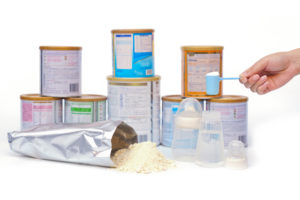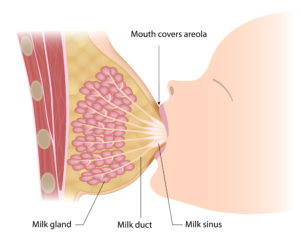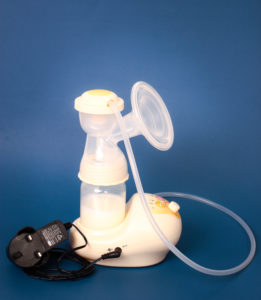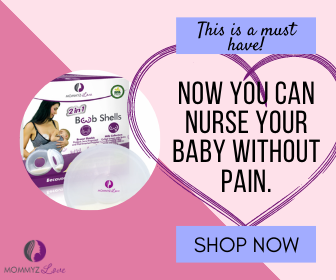Sometimes breastfeeding doesn’t go as planned, and many moms make the decision to stop due to an illness or simply because they feel it is the best decision for their family. Though many are at peace with this choice, some moms regret quitting and wonder if it’s possible to relactate. Other moms who are adopting a baby wonder if they are able to lactate and breastfeed their child, even though they did not give birth – this is known as induced lactation. Relactation and induced lactation are successful for many moms! Read on to learn more about how to best navigate this journey.

The process for relactation and induced lactation is the same – you are teaching your baby to successfully latch onto your breast while simultaneously building a milk supply. How do you go about this?

The most important factor in creating a steady supply is regular nipple stimulation. This can be done through effective breastfeeding sessions where the baby is feeding frequently at the breast with a proper latch. Pumping, especially with breast compression, is also a great way to stimulate nipples frequently and sufficiently.
Many women wonder if their baby’s age plays a factor in successful relactation – the short answer is yes. If your baby is under four months of age, relactation is generally an easier process because your baby can learn to get back on the breast effectively.
This doesn’t mean that moms with older babies or moms who did not give birth will not be successful with relactation and induced lactation. Breastfeeding is about so much more than breast milk, so any nursing session will be beneficial to your baby.
Sometimes moms have trouble getting their baby to latch. This can be frustrating because nipple stimulation is important for breastfeeding.

The best way to troubleshoot this is to see a lactation consultant, preferably an International Board Certified Lactation Consultant, to help you figure out the best way to get your baby back on the breast.
Don’t despair – if your baby won’t latch and you’re still committed to giving breast milk, there is always the option to pump to stimulate the breasts and feed milk to your baby in a bottle or cup. This is referred to as exclusive pumping, and although it takes a great amount of dedication, many moms will choose to pump and feed in place of giving their baby formula. Pumping frequently will also help increase your milk supply.
What if your baby is latching well, but your milk supply still doesn’t seem sufficient? Again, working with a lactation consultant is going to be the best way to troubleshoot your individual situation, but you certainly have options. A nursing supplementer is a great way to get your baby on the breast while simultaneously building your supply.

You’ll also want to stimulate your breasts as much as possible through pumping. Make sure you are pumping and feeding your baby often, preferably every 2-3 hours in the newborn and infant stages.
You might have heard of moms taking specific supplements to boost milk supply, such as fenugreek or blessed thistle. These substances are referred to as galactagogues and are thought to interact with the dopamine system to increase prolactin.
Herbs and other supplements show little scientific evidence of actually increasing milk supply, while certain medications such as domperidone are approved to promote lactation in other countries, but not in the United States.

Sometimes women have reported unwanted side effects from fenugreek and other supplements, too, such as increased gas and spit up in their babies. Before beginning any supplement, it is best to speak to your midwife, pediatrician, or lactation consultant.
Relactation and induced lactation experiences can vary from woman to woman, but an IBCLC will be a tremendous resource for you and guide you through the best possible path for your lactation journey. Breast stimulation is key for building a healthy supply, and getting your baby to properly latch and transfer milk is also essential. Don’t get discouraged – persevere and use your resources, and you should be able to successfully relactate.
Relactation could be something that you are considering, and why not after all sometimes we jump right into our breastfeeding journey, and can struggle right from the begging, giving up before we even started, or maybe we are adopting a baby and want to provide the very best source of nutrition. Whatever the reason maybe it’s always comforting to now that even once you baby is older you still have the choice, and with a little help it is certainly possible.
Do you have a successful story where you were able to get back on track or start all together your breastfeeding journey through relactation? If so what was it like, and what made you make the decision in the first place.






